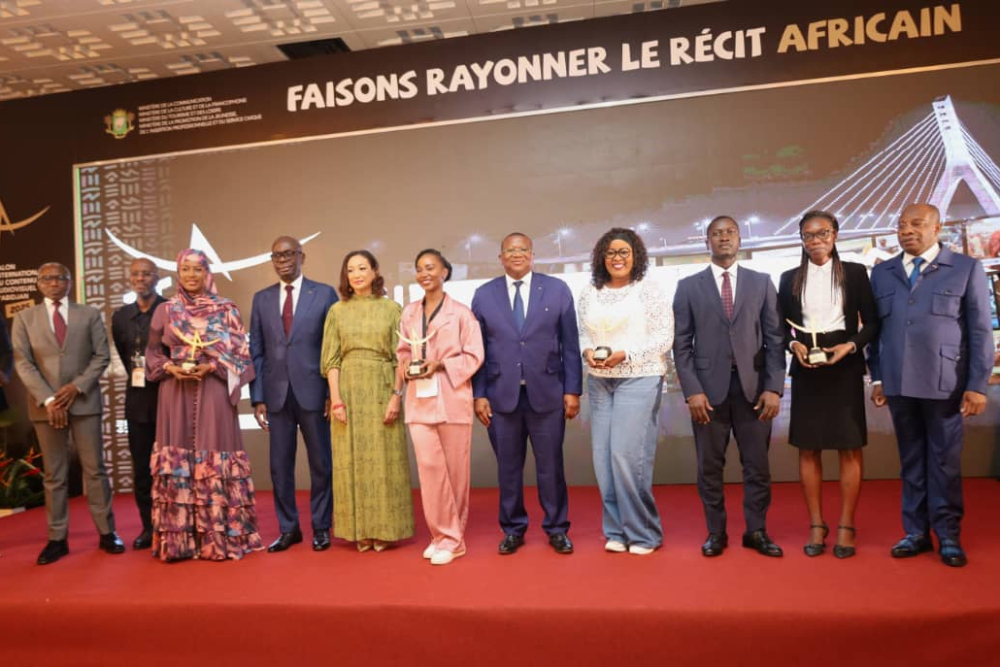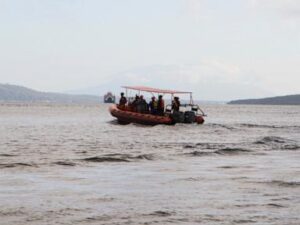
The third edition of the International Salon for Audiovisual Content (SICA) concluded last week in Abidjan, Côte d’Ivoire, marking a significant moment for Africa’s burgeoning film and television industry. The event gathered creators, government officials, and industry stakeholders from across the continent and beyond, emphasizing a message of self-determination: Africa’s audiovisual sector is no longer waiting for permission; it is actively shaping its own future.
Amid a series of packed panels, pitching sessions, and networking events, several key themes emerged that highlight the evolving landscape of African film and TV. Here are the major takeaways from this pivotal week in Abidjan.
Local Storytelling: A Market Necessity
From scripted dramas to reality TV, local storytelling has emerged not only as a creative priority but as a market necessity. African audiences are increasingly demanding content that reflects their own experiences and cultures. Kimberley Azria, producer and managing director at Aby Media, noted, “Generations of Africans have grown up with stories, characters, and themes that they don’t recognize themselves in. That’s changing now, and it’s a relief.”
This shift can be traced back to the rise of Nollywood, which has set a precedent for high-quality African storytelling. Nigerian-born actor and filmmaker Mamane emphasized the need for quality in African films, stating, “Africans know what a good film looks like. They’ve been watching French, American, and Bollywood films forever. If you want us to watch African films, they need to be good. Not just, ‘Yes, it’s an African story.’ We want beautiful images, good editing.”
Pan-African Collaboration: From Slogan to Strategy
Cross-border cooperation is becoming a reality, as evidenced by production deals, training programs, and co-financing conversations taking place across the continent. “We’re seeing producers from Senegal, Nigeria, Ivory Coast, and beyond begin to work together seriously,” said Azria. “It’s no longer ‘Pan-Africanism’ as a slogan, it’s Pan-Africanism as a business model.”
Ivorian producer Charly Kodjo highlighted the importance of collaboration over aid, stating, “Europe has experience, but they should come to co-create, not to help. I prefer to ban the word ‘aid’ from my vocabulary. Collaboration is the future.” Mamane echoed this sentiment, expressing eagerness for more intra-African partnerships, particularly with countries like Senegal, which boasts a strong audiovisual ecosystem.
Financing Models: Slow but Steady Progress
Securing financing remains a significant challenge, yet there are signs of progress. Ivorian director-producer-actor Alex Ogou noted, “We’re at a critical moment. Not yet an industry, we’re not there. But the state, the private sector, and professionals are finally starting to speak the same language.”
A memorandum of understanding signed during SICA by various Ivorian state actors aims to foster closer collaboration between banks and the audiovisual sector. Minister of Culture Françoise Remarck emphasized the state’s role in bridging this gap, stating, “The goal is to develop specialized banking services that understand the industry, and to train our creators to meet financial standards.”
“If the state offered even a small tax break, 0.5%, 1%, for money invested in the audiovisual sector, that would be a game changer.” – Alex Ogou
Talent Development: Building the Industry’s Foundation
Training emerged as a recurring priority, essential for cultivating a skilled workforce across all levels of the industry. Mamane stressed, “You need to train everyone. Cinema is not a pastime, it’s an economy.” French producer Alex Berger underscored the need for a long-term talent pipeline, stating, “The kids have to learn. The only way that you learn is by doing, which means you have to attract more production.”
Charly Kodjo’s Creativ Lab initiative is addressing this challenge by offering Ivorian trainees immersive experiences in Nigeria. “When they come back, they’re competent. They’ve seen another reality,” Kodjo explained. Minister Remarck added that Côte d’Ivoire is encouraging international productions to involve students directly on set, a move deemed essential for building a sovereign, skilled industry.
Ivory Coast: A Rising Production Hub
With political backing and geographic versatility, Ivory Coast is positioning itself as a regional production hub. “We want people to say: ‘If a shoot is happening in Africa, it should happen in Ivory Coast,’” insisted Remarck. The country already hosts weekly TV productions and has served as a location for international series like “Eldorado.”
However, challenges remain, particularly regarding digital infrastructure. Ivorian creators face difficulties monetizing content on platforms like YouTube and TikTok due to high internet costs. Despite these obstacles, the mood at SICA was optimistic. “African cinema is going to explode, whether we lead it or not,” said Ogou. Mamane, who returned to Africa in 2013, concluded, “We have everything: the talent, the stories, the youth. What we need now is the will to channel it, and the belief that we can.”





